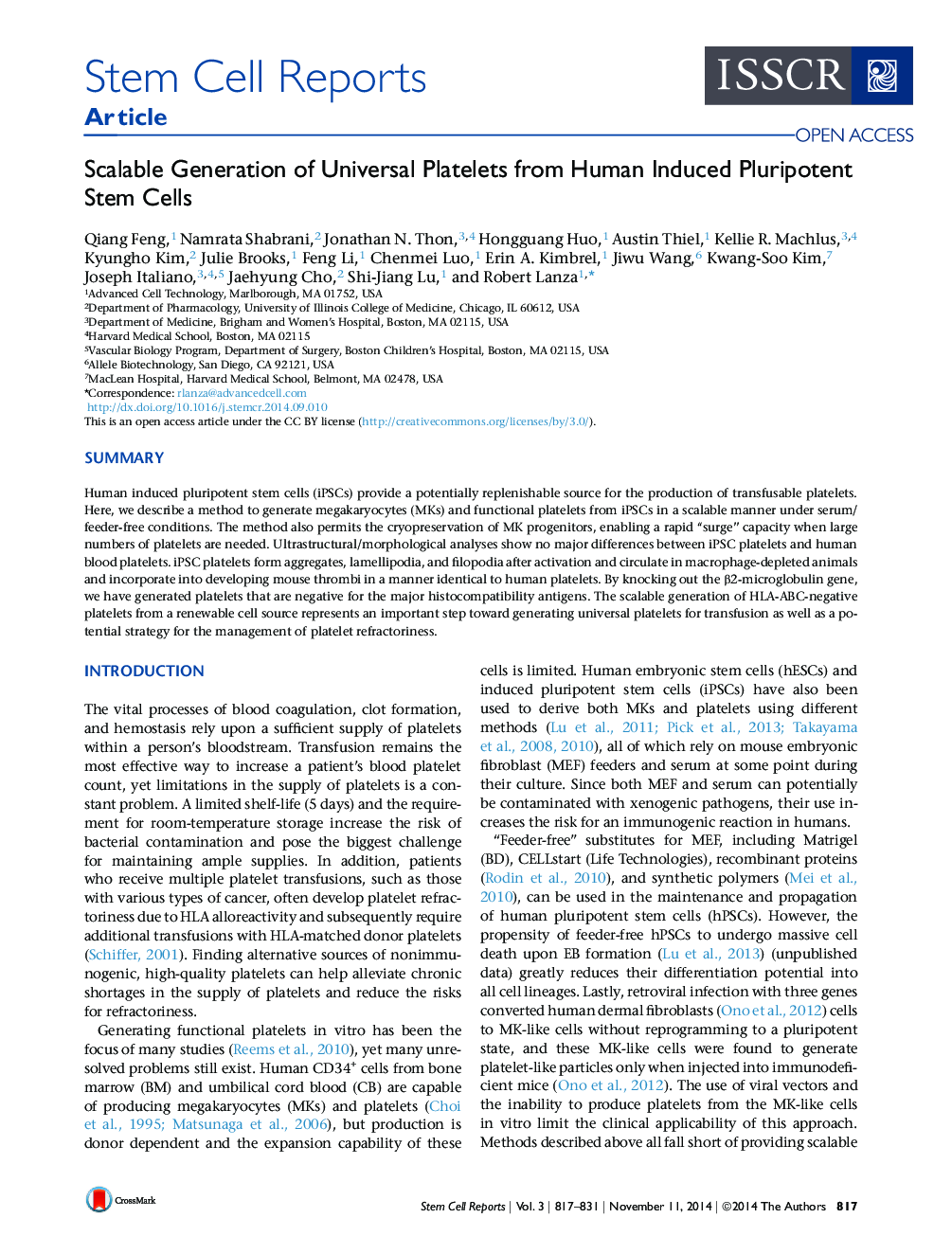| Article ID | Journal | Published Year | Pages | File Type |
|---|---|---|---|---|
| 2093330 | Stem Cell Reports | 2014 | 15 Pages |
•Large-scale production of platelets from human iPSCs under defined conditions•iPSC platelets are functional both in vivo and in vitro•Knockout of β2-microglobulin gene in iPSCs generates universal platelets
SummaryHuman induced pluripotent stem cells (iPSCs) provide a potentially replenishable source for the production of transfusable platelets. Here, we describe a method to generate megakaryocytes (MKs) and functional platelets from iPSCs in a scalable manner under serum/feeder-free conditions. The method also permits the cryopreservation of MK progenitors, enabling a rapid “surge” capacity when large numbers of platelets are needed. Ultrastructural/morphological analyses show no major differences between iPSC platelets and human blood platelets. iPSC platelets form aggregates, lamellipodia, and filopodia after activation and circulate in macrophage-depleted animals and incorporate into developing mouse thrombi in a manner identical to human platelets. By knocking out the β2-microglobulin gene, we have generated platelets that are negative for the major histocompatibility antigens. The scalable generation of HLA-ABC-negative platelets from a renewable cell source represents an important step toward generating universal platelets for transfusion as well as a potential strategy for the management of platelet refractoriness.
